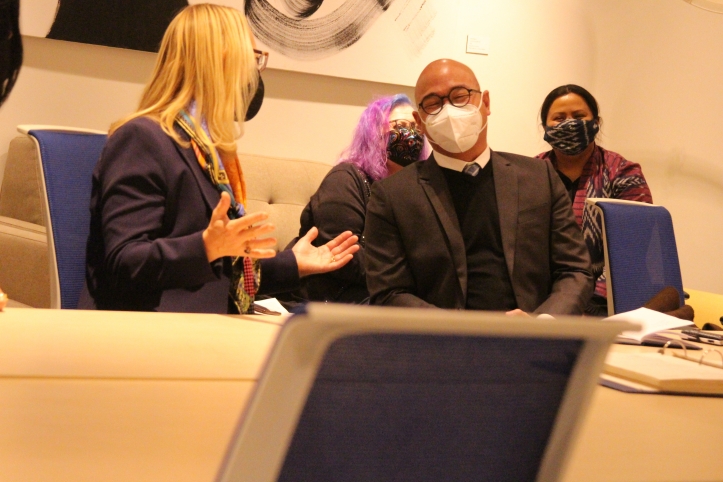Royal Thai Consulate-General Delegation visit to Department of Ethnomusicology
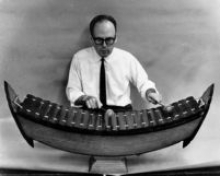
On Thursday 24 February 2022, the UCLA Department of Ethnomusicology was honored to welcome Consul-General Tor Saralamba of the Royal Thai Consulate-General, together with his colleagues Consul Areeya Prajunpanich Forastieri and Mr. Kenny Young, Assistant to the Consul-General. Following an invited presentation the previous week at the Consulate-General by Adjunct Assistant Professor Supeena Insee Adler on the sixty-plus-year history of Thai music at UCLA, Consul-General Saralamba asked to visit the Department of Ethnomusicology and learn more about our renowned Thai instrument collection and the Thai recording repatriation project undertaken by the Ethnomusicology Archive over 2015–2016.
The Consulate-General delegation was greeted at the Green Room at 4pm by Dean Eileen Strempel, Inaugural Dean of the Herb Alpert School of Music; Professor Roger Savage, Chair of the Department of Ethnomusicology; and Dr. Diane Gu, Interim Executive Director of Development for the School of Music. Dean Strempel made a welcoming speech and presented Consul-General Saralamba with a gift prepared by Professor Adler: a framed photograph of Ms. Chin Silapabanleng (1906–1988), the daughter of famed court musician Luang Pradit Phairoh (1881–1954), and the person who greenlit our purchase of instruments from her father's establishment back in the 1960s; and the CDs and liner notes created from the classic LP The Traditional Music of Thailand (UCLA Institute of Ethnomusicology, 1968).
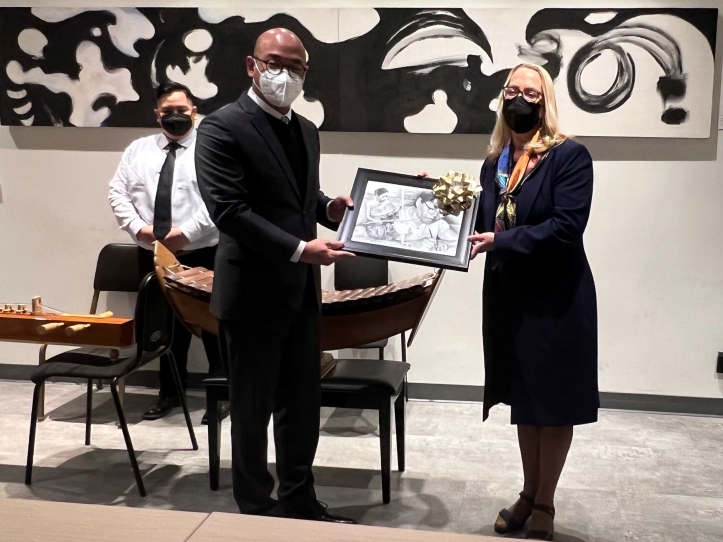
Following this presentation, Professor Helen Rees, Director of the World Music Center, spoke briefly about the history of ethnomusicology at UCLA and the centrality of Thai music to the founding of the field at the university, since Thai classical music was one of the first three world music cultures to be established here (the other two were Javanese gamelan and Japanese gagaku); she also expressed our gratitude for the substantial funding provided since 2015 by the Royal Thai Embassy and the Royal Thai Consulate-General to enable us to resume the teaching of Thai music at UCLA after a long hiatus.
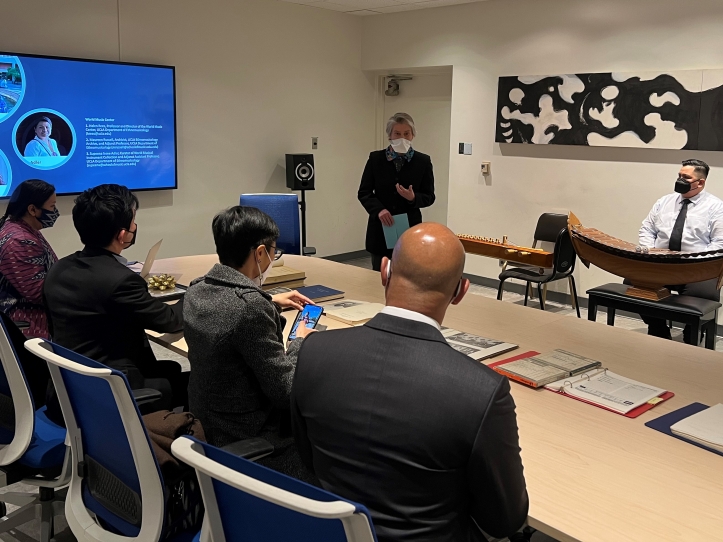
She was followed by Professor Maureen Russell, Archivist at the UCLA Ethnomusicology Archive, who described the famous 1959 and 1969 recordings of Thai classical music made in Bangkok by UCLA Professor David Morton, and the Archive's repatriation of digitized copies of these 111 reels to the Luang Pradit Phairoh Foundation and the National Library of Thailand in 2016. This was the culmination of a nine-month digitization project carried out by recording technician David Martinelli in the Ethnomusicology Archive. Professor Russell noted that the Morton recordings are now available online, open access, as part of Ethnomusicology: Global Field Recordings, the Ethnomusicology Archive's partnership with UK publisher Adam Matthew Digital.
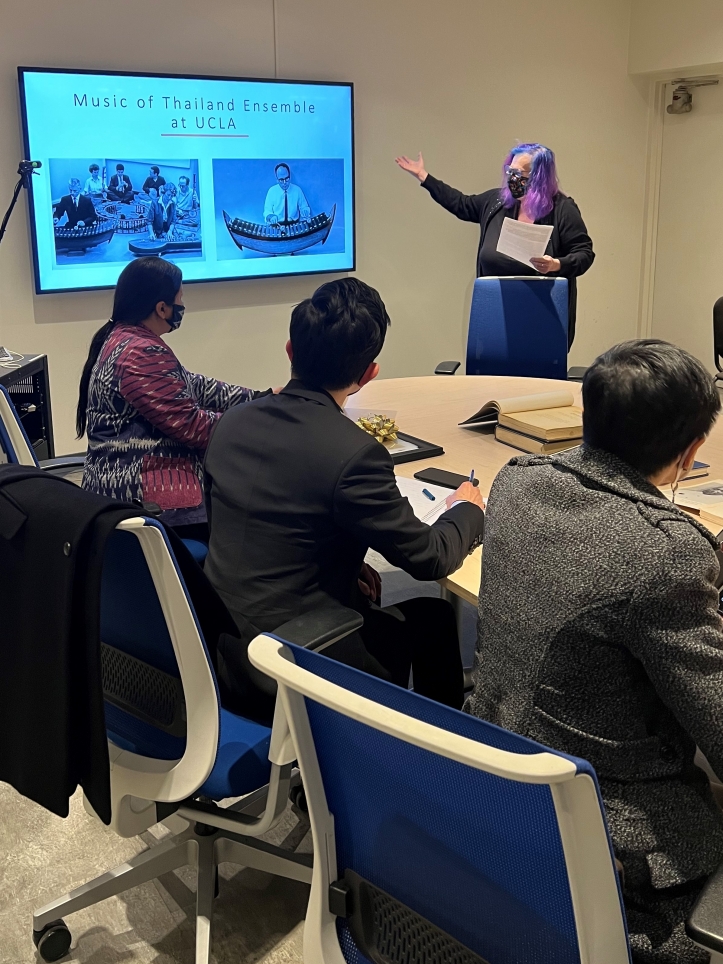
At the repatriation ceremony held at the Foundation in July 2016, one of the people present was Colonel Sanau Luangsunthorn, a Thai national artist, now in his eighties; he had been one of the musicians at the 1969 recording sessions, and was delighted to hear his own playing on that day for the first time, almost fifty years later. Maureen's presentation was followed by Supeena's on the history of UCLA's Thai instrument collection, much of which had originally come in the 1960s from the house of Luang Pradit Phairoh. She spoke also about her project to repair the instruments, which started in 2014, and about the Thai music performance and academic classes we have been able to hold since then.
The presentations were followed by a beautiful short performance of the overture Jaumsuraang saam chan on ranaat ek (xylophone) and jakhe (3-string zither) by guest musician Surapan Phonsukha, who had come specially that day from Bakersfield, and Supeena herself.
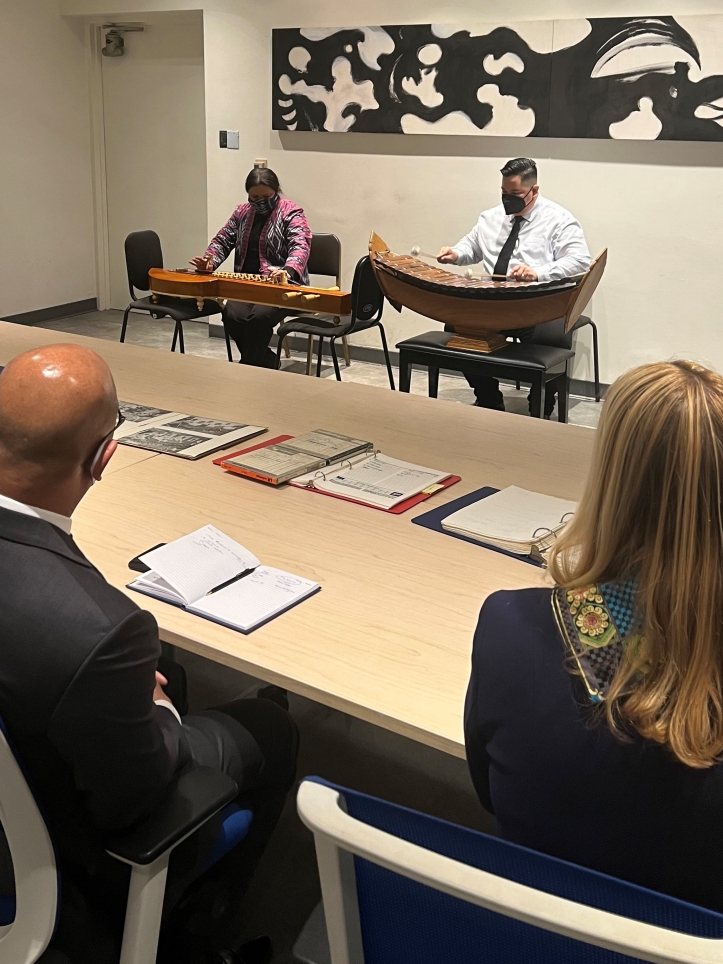
In the Thai classical music tradition, it is customary to begin events with an overture that signifies to audiences that the event is about to start. Jaumsuraang is an honorific title to show respect and spiritual status to royalty or divinities. The piece has two sections showing the beauty of a complex composition style, including melodic canon and call-and-response, that was popular from the mid 20th century to the present.
Thereafter the guests were taken to view the historic Thai instruments, and to see the India and Gamelan Rooms. Finally, after refreshments in the courtyard outside the Ethnomusicology Archive, they were given a tour of Schoenberg Music Building by Alex Echevarria, Director of Operations for the School of Music. This was a packed hour, after which Supeena and Helen escorted our guests back to their car.
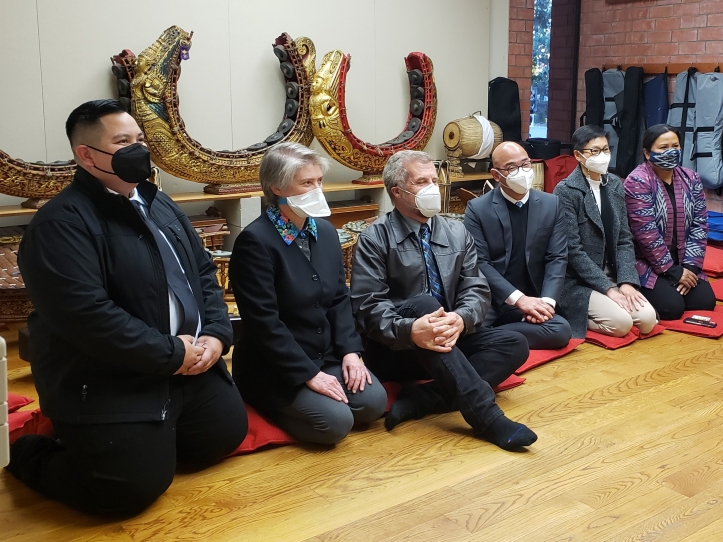
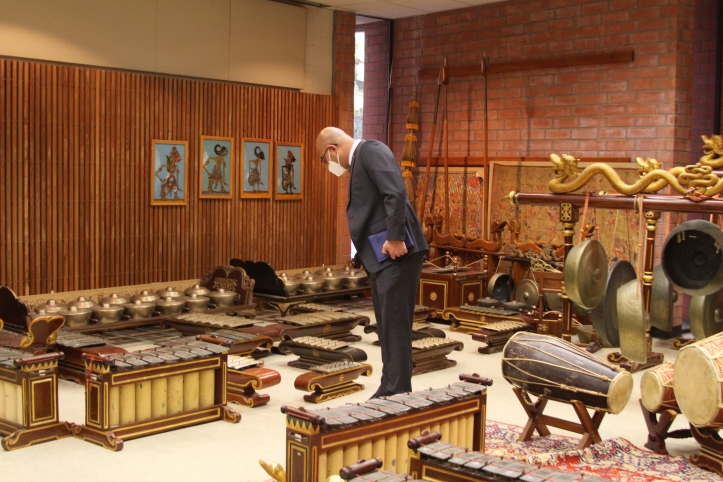
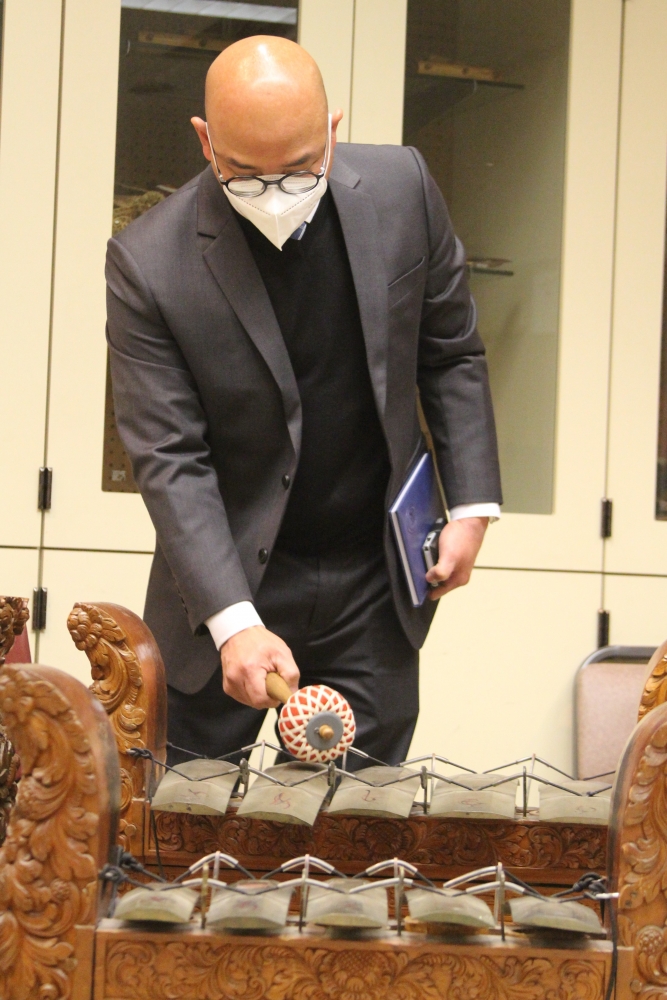
We have been delighted at the Royal Thai Consulate-General's interest in and support for the Department of Ethnomusicology's Thai music program since 2015, and we are most grateful to the new Consul-General and his team, and to Dean Strempel and her team, for making the time for this memorable event that underlines the Department of Ethnomusicology's ongoing links with Thai music and culture.
